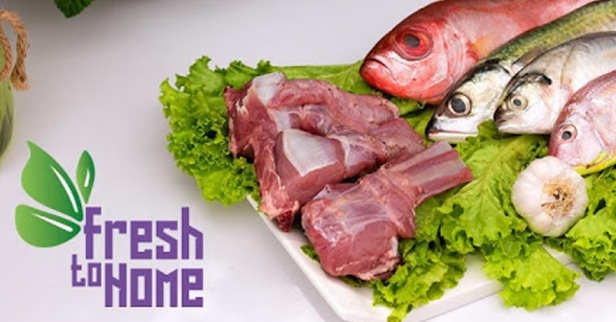Digital disruption transforming food in e-commerce: FreshToHome
December 24, 2020: The integrated online brand in fresh fish and meat e-commerce brand FreshtoHome feels that some trends were visible in 2020 including the digital disruption will be defining the way in 2021 as well.

December 24, 2020: The integrated online brand in fresh fish and meat e-commerce brand FreshtoHome feels that some trends were visible in 2020 including the digital disruption will be defining the way in 2021 as well.
“Thanks to Covid-19, contactless deliveries were a trend that began early in 2020 but will continue well into 2021 unless the vaccine is administered to everyone across the globe. It mitigates the risk of virus transmission by limiting contact between people during transactions. Additionally, the robust digital payment ecosystem made the process even more smooth and safe. In some cases, the contactless deliveries were also enabled through the use of robots and drones, which might just gain more popularity in future,” says the release.
Customers have adopted many habits during the pandemic that are here to stay. They have many reservations about sourcing perishable food produce from unhygienic wet markets. Hygiene and physical contact being the primary concern among the concerned customers. FMCG companies are launching products online before the traditional retail stores, with e-commerce sales recording 56 percent growth in the first quarter of 2020 and 38 percent increase in June 2020, according to India Brand Equity Foundation (IBEF). India e-commerce is projected to reach $99 billion by 2024, growing at a 27 percent CAGR over 2019-24, with grocery being one of the key drivers of incremental growth, as per IBEF.
Another thing that is radically changing is brand loyalty as the customers have begun to question the hygiene aspect. The change in purchase pattern is also evident. It has been observed that customers are increasingly looking at certified and tested quality products than on lower quality products that could potentially cause harm in any way.
Shan Kadavil, CEO, FreshToHome said, “Today’s customers are smart. They seek validation for the products they consume. Therefore, a certification of a product’s safety and quality are of utmost importance. There has also been a change in the purchase pattern as the customers of today are looking a quality product that is transparent in its ingredients, neat in packaging and allows traceability of source. FreshToHome platform offers the freshest meat and fish thanks to the AI-powered supply chain technology, aided by a cold chain used by its sellers. This is to ensure that our customers get 100 percent chemical-free and preservative-free products."
The food industry has recognised that transparency builds consumer trust. Consumers now expect food labels to provide better transparency around the product lifecycle. The customer’s quest for chemical-free and preservative-free food alternatives is another key trend. Therefore, the pandemic has accelerated consumer interest in a more holistic approach to health, which includes a greater understanding of hygiene and safety.
The food companies have slowly realized that collaboration is key to ensure doorstep deliveries as consumers want products and services to be brought directly to them, irrespective of their geography.
Online shopping is the new normal and an undisputed way forward when it comes to safe and secure purchases. The food sector that had been gradually attracting consumers since 2018 has seen a paradigm shift in shopping behaviour and is currently enjoying the attention. FTH Daily, the e-grocery initiative by FreshToHome, is one such company which ensures delivery of groceries, fresh vegetables and fruits directly procured from the farmers to ensure quality and hygiene for their customers. Both FreshToHome and FTH Daily work well because they are transparent about their products, their availability and when they will be delivered through their fully integrated online sales portals.
Thus, with ever-increasing numbers of online buyers and digital disruption, the food industry in the e-commerce space will continue to grow owing to more sophisticated digital networks.



